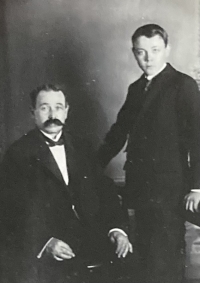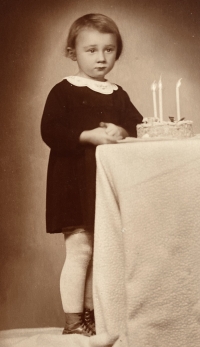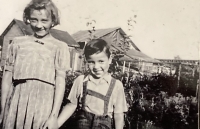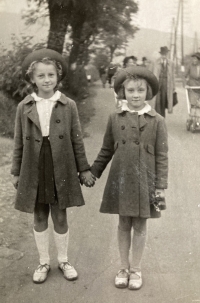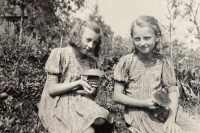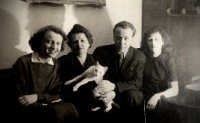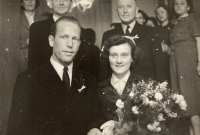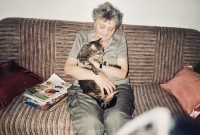He couldn’t play in our field with a star of David, so I went to Hagibor with him
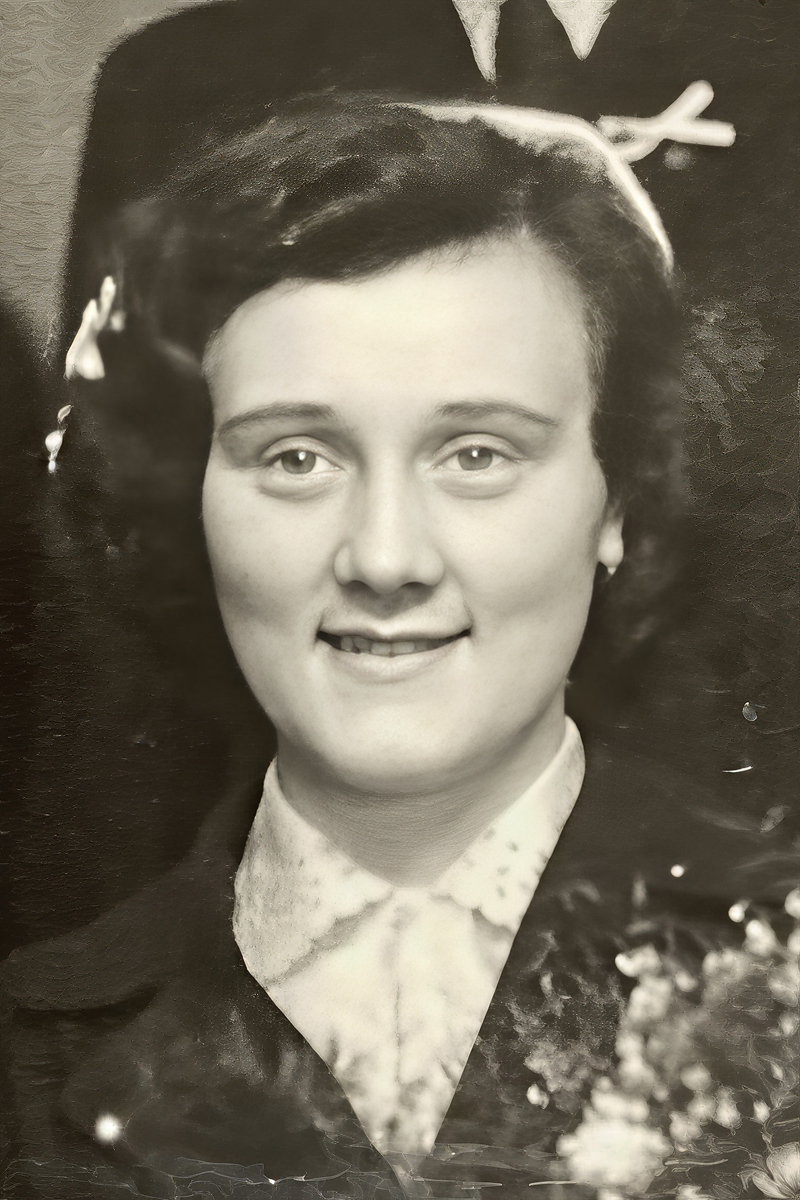
Download image
Hana Hejnová, née Šperlová, was born in Prague on 11 November 1934 into a patriotic family. As a child, she and her parents took part in a protest against the Nazi occupation on 28 October 1939, which gave her recurring nightmares. Her uncle Josef Šperl was arrested by the Gestapo as a member of the illegal Věrni zůstaneme (We Remain Faithful) Petition Committee and tortured to death in the Mauthausen concentration camp in 1942. Her other uncle Václav Kubíček, ended up in Buchenwald on denunciation of the well-known collaborator Emil Pisinger from Týn nad Vltavou. During the war, the witness also lost her best friend Petr Neumann who perished with his entire family in the Treblinka extermination camp because of his Jewish origin. After the bombing of Prague on 14 February 1945, she left with her mother for Týn nad Vltavou where she lived through the end of the war and the May Uprising. After the war, she became actively involved in the renewed Scout movement. At age fifteen, she had begged for a two-year study at an economics school, but did not finish her high school diploma until later. She got married in 1954 and raised two sons. In 1968, she was in the thick of the August events in Prague and also took an active part in the demonstrations in November 1989. At the time of filming in 2024, she was living in Prague.

